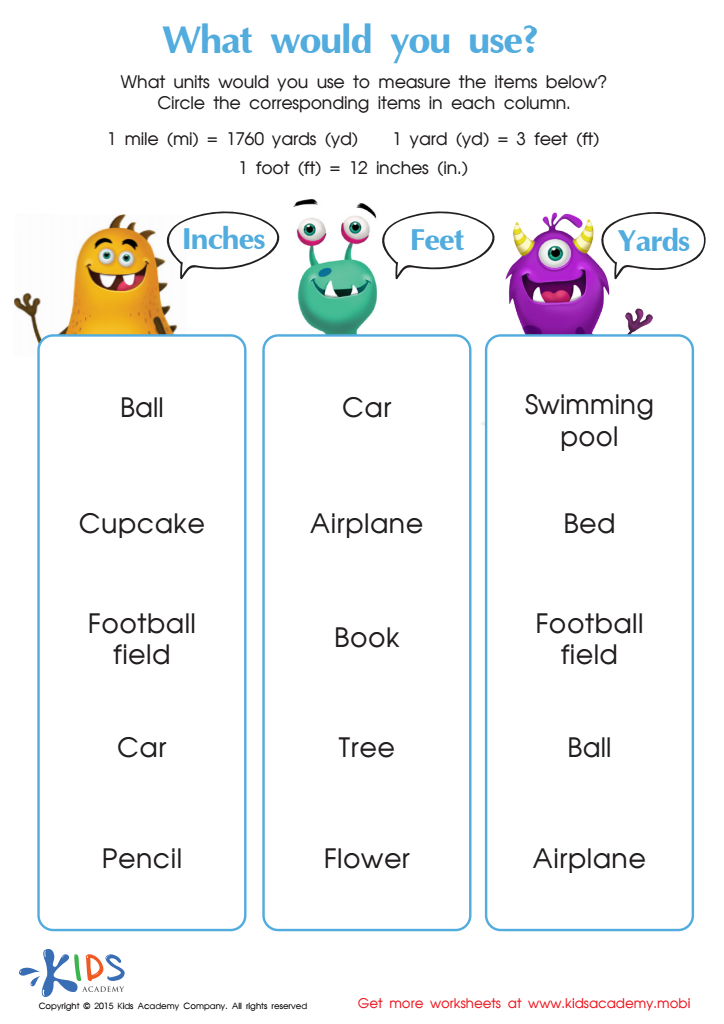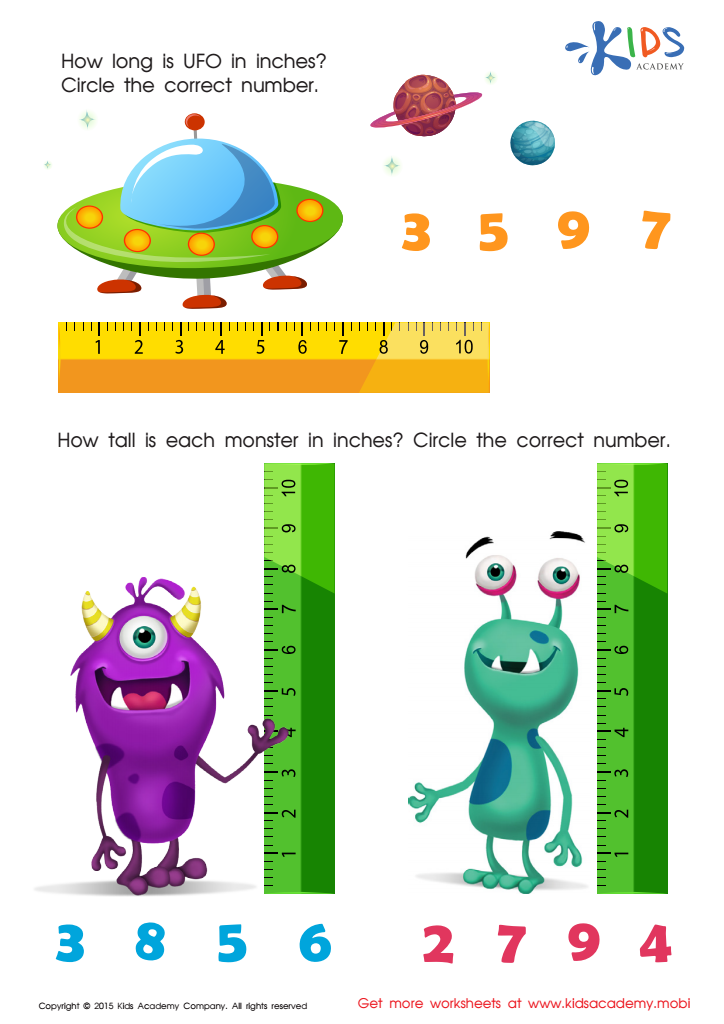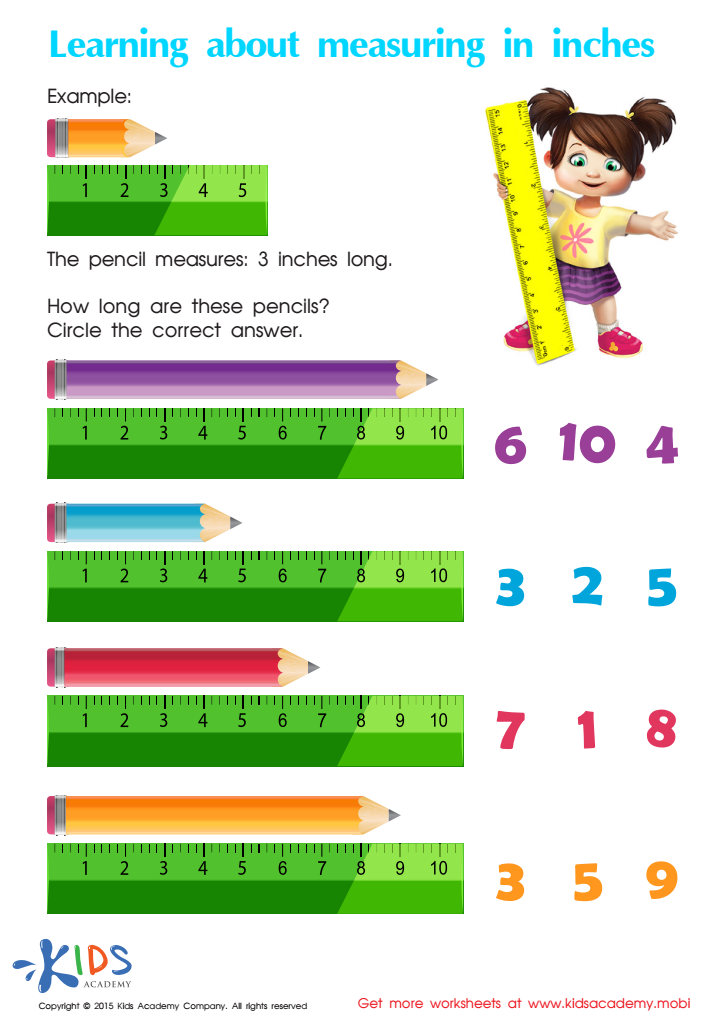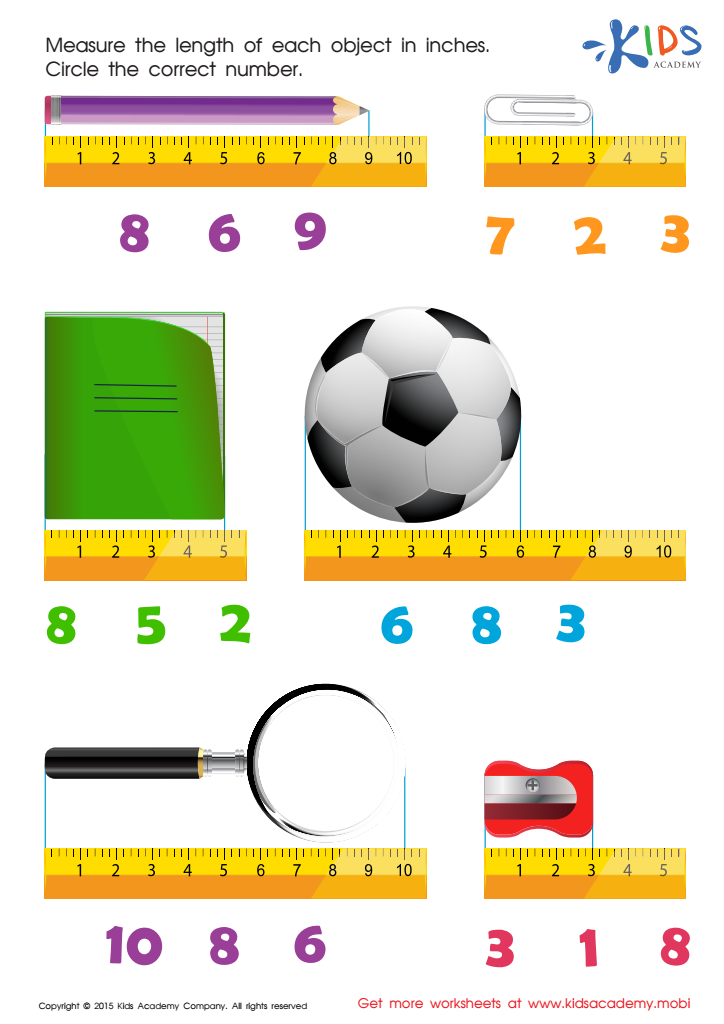Understanding measurements Extra Challenge Measurement Worksheets for Ages 4-5
4 filtered results
-
From - To
Explore our "Understanding Measurements Extra Challenge Measurement Worksheets" designed specifically for children ages 4-5. These engaging worksheets offer a fun and interactive way for young learners to grasp the concept of measurements. By using colorful visuals and relatable scenarios, children will enjoy practicing various measurement skills such as length, height, and weight. Our extra challenges encourage critical thinking and problem-solving while catering to different learning paces. Perfect for classroom or home use, these worksheets help develop foundational math skills, making learning about measurements both enjoyable and effective. Dive into the world of measurements and watch your child's confidence grow!


Learning about measuring objects in inches, feet and yards Worksheet


Measuring in Inches Worksheet


Learning About Measuring In Inches Printable


Learning measuring objects in inches Worksheet
Understanding measurements is crucial for young children's development, particularly for ages 4-5, as it forms the foundation for later math skills and everyday problem-solving. Early exposure to measuring concepts helps foster cognitive growth, critical thinking, and an appreciation for math in a real-world context. Engaging with measurements allows children to compare sizes, lengths, weights, and volumes, which enhances their spatial awareness and reasoning abilities.
For parents and teachers, introducing extra challenges in measurements can be a fun and interactive way to reinforce these foundational skills. Activities such as comparing the lengths of objects, measuring ingredients for a simple recipe, or even using non-standard units (like blocks or hands) can spark curiosity and creativity. These experiences not only promote mathematical understanding but also encourage collaboration and communication among peers.
Moreover, learning about measurements helps build confidence in young learners. Mastery of these skills prepares children for more complex mathematical concepts in later grades, making it an essential investment for their academic future. Ultimately, by prioritizing measurement understanding through exciting challenges, parents and teachers can cultivate a lifelong interest in learning and mathematics in their students.
 Assign to My Students
Assign to My Students





















